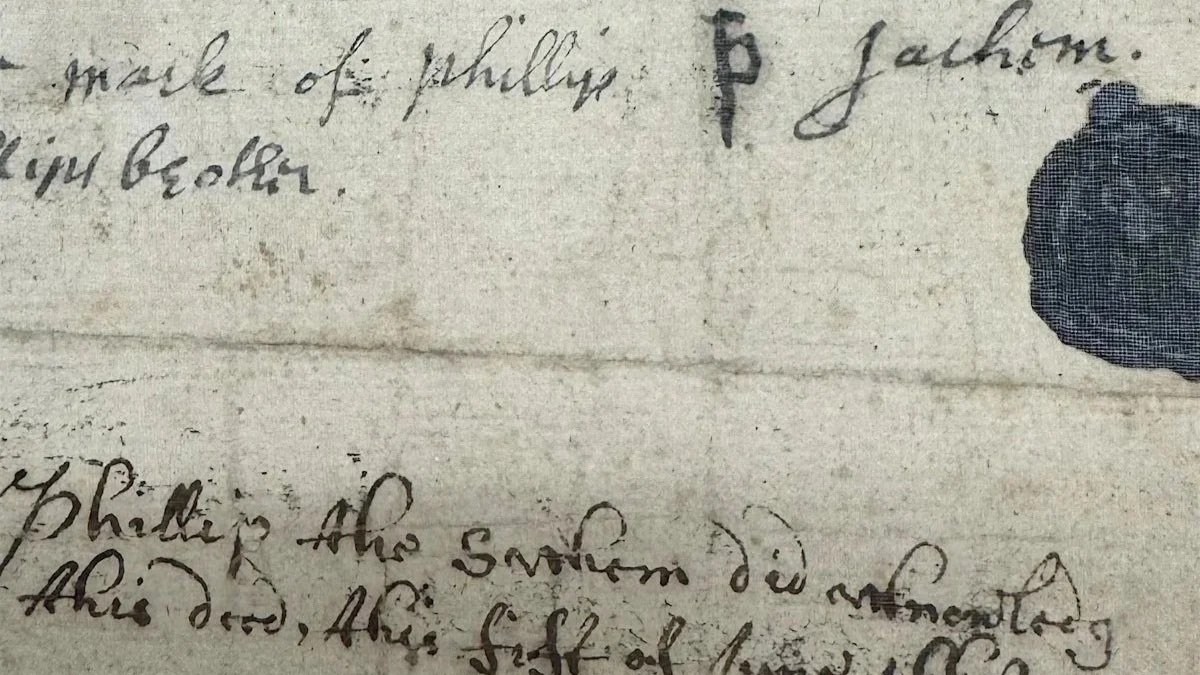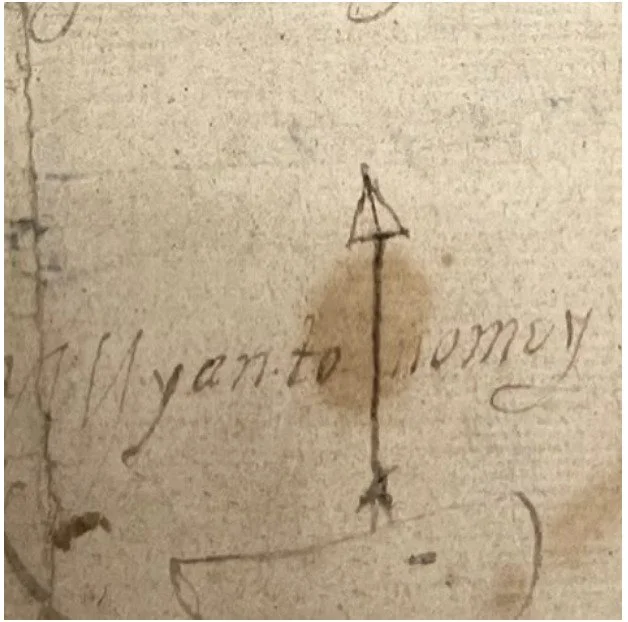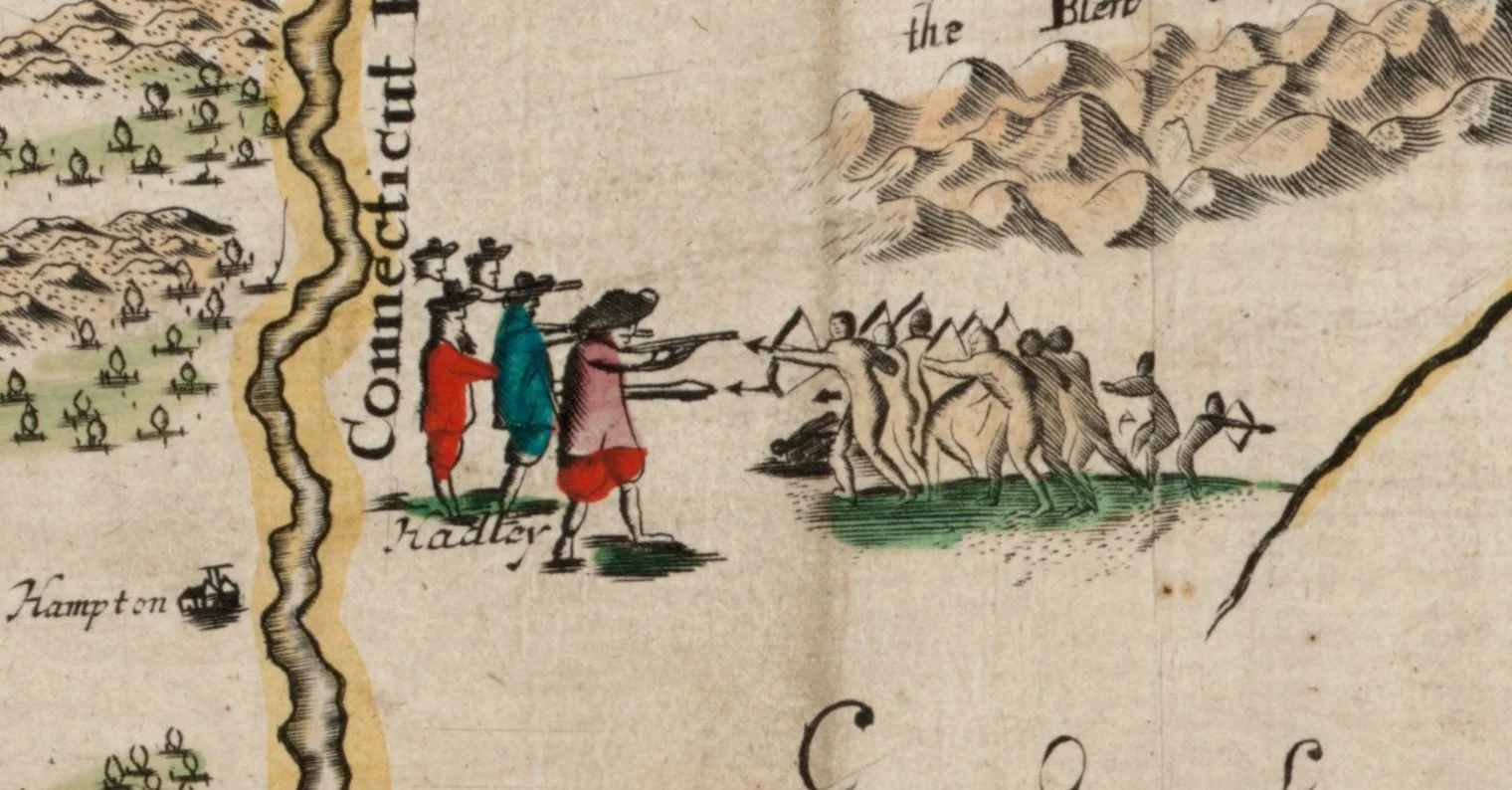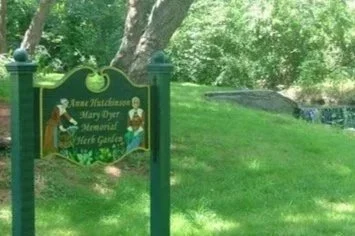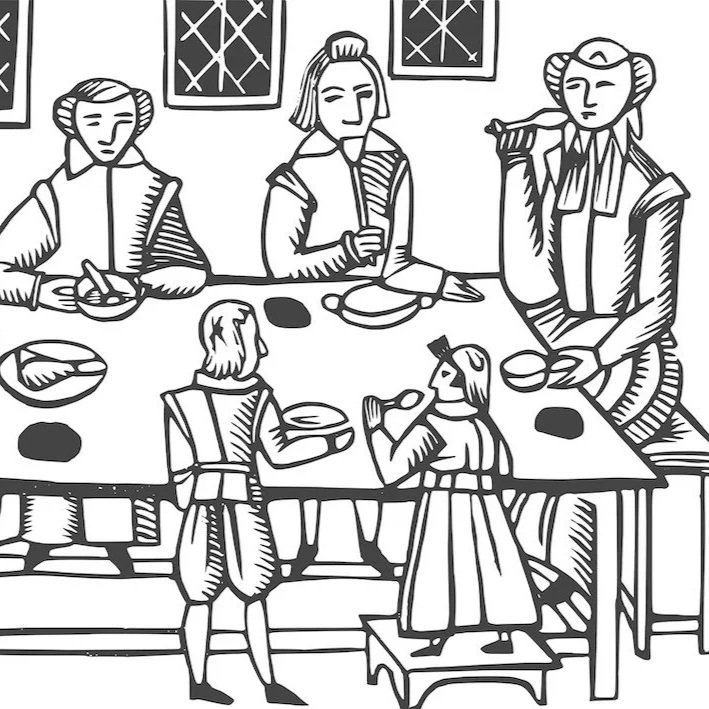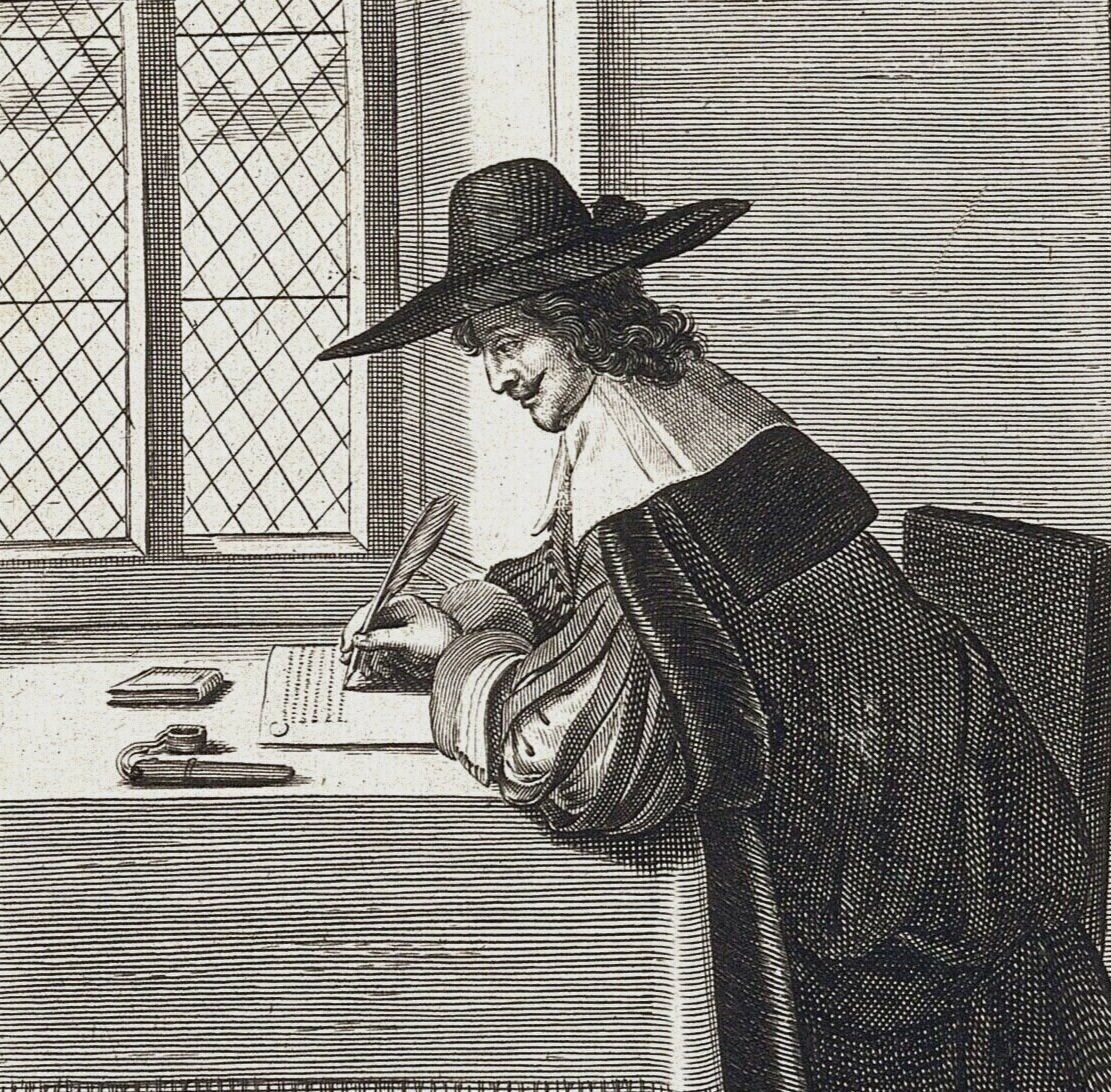
Join the 17th Century
Explore the story of early Boston, Massachusetts, and the wider 17TH century world
their marks, their lives
“What do you see in these marks?” asks Kimberly Toney, coordinating curator for Native and Indigenous materials at the John Carter Brown Library and John Hay Library at Brown University. “What do they make visible? And what responsibilities come with knowing all this?”
Those of us who read traditional accounts of early New England history are accustomed to erasure - the invisibility of Indigenous people of the Eastern Woodlands in traditional accounts, except perhaps as greeters of colonists on the shore or aggressors at war. Kim Toney’s important project on Instagram and Tumblr, Their Marks, shows that, on the contrary, Indigenous people were present in all aspects of life, as their signatures, or marks, testify. These marks are, as Kim Toney writes, a sign of survivance and agency in a system in which Indigenous people were never meant to be honored or recognized or their way of life validated.
Read Kim Toney’s important blog post, here, and see the marks of twelve Indigenous people of the Eastern Woodlands, whose lives we will also see in our upcoming series on King Philip’s War, Metacom’s Resistance.
Kim Toney will appear as part of an inter-tribal panel exploring the costs and consequences of King Philip’s War in the final event of the series, at the main Boston Public Library and livestreamed, on Thursday, May 28, 5:30-7:30pm ET. Sign up for The Long Legacy here.
This is one of few known written records, in his own hand, of Metacom, or Philip, Wampanoag sachem who led Indigenous resistance. Philip, sachem of the Wampanoag. Quitclaim by Philip, Rehoboth, MA. From the collections of the John Carter Brown Library.
starting march 11! Retelling King Philip’s War
If you are not Indigenous, chances are that you think of King Philip’s War - if you think of it at all - as a relic of the past, the very distant past, with nothing to do with us today.
But on its 350th anniversary, understanding King Philip’s War is more pressing than ever. Largely unknown, it was described by most historians as a wanton attack by savage Indians who left half of all colonial towns destroyed and dozens injured and dead, with many more captured. In this version of history, the colonial victory in southern New England brought God-given hegemony to the English. But what if we turn this history on its head? What if it was resistance, a fight for survival and dignity, not a wanton attack?
In Metacom’s Resistance, our new eight-part series, the Partnership of Historic Bostons proudly brings you a new telling of this most devastating of American wars. We look at the reasons why so few of us know of the war, or know only a partial view - like that of the triumphal monument to Captain William Turner, whose massacre of several hundred noncombatant Native people was deemed a great victory. We look too, at how, for Indigenous people today, the past is not past, but profoundly present.
And we see the costs of the war: the sale of enslaved Indigenous people to as far away as the Caribbean and north Africa; the mass killing of civilians; and the end to coexistence between English and Indigenous people and the near-death of Indigenous sovereignty. We ask: how should we reckon with this legacy?
Award-winning historians, Tribal historic preservation officers, independent scholars and Tribal citizens come together in Metacom’s Resistance to address these and other questions. We are honored to work with them all, as well as with supporting institutions.
Join us! Sign up now for each and every one of our eight events. We look forward to seeing you, and to hearing what you think.
The signature of Miantonomo, Narragansett sachem, on a deed signed in Warwick, Rhode Island, in 1642. John Carter Brown Library, Providence, RI
After being forced to sign a one-sided treaty in the wake of the Pequot War, Miantonomo gave a speech calling for Indigenous unity in the face of colonial rapacity for land. As recorded by colonist Lion Gardner, he recalled that “our fathers had plenty of deer and skins, our plains were full of deer, as also our woods, and of turkies, and our coves full of fish and fowl.” But now, he said, “these English having gotten our land, they with schythes cut down the grass, and with axes fell the trees; their cows and horses eat the grass, and their hogs spoil our clam banks, and we shall all be starved.”
help us tell a new history - donate now
Metacom’s Resistance: Retelling King Philip’s War and Its Legacy is our most ambitious program series to date, with the largest number of speakers and, in 2026, with mounting costs. As you know, PHB pays no rent and no salaries. Everything we do is carried out by volunteers. But we do have expenses… from our too-small honoraria to tech platforms to leaflet printing and travel for speakers.
If you want to see history programs that help turn mainstream history upside down, and challenges the story told by historians from Increase Mather to Edward Everett, support us! Your support will also help us continue the history of King Philip’s War into late 2026 and 2027, just as the war itself continued in northern New England until 1678, with a different outcome.
We need new tellings of history, to bring more voices into the limelight and to help us all understand our shared past. We need your help to do so.
Please donate here! Thank you for supporting 17th century Indigenous public history.
This small piece of a 1675 map is the only surviving depiction of fighting in King Philip's War, according to historian Jill Lepore. John Seller, "A mapp of New England" (London: And are to bee sold at his shop at the Hermitage in Wapping and by Iohn Hills in Exchange Alley in Cornhill, [1675]). Leventhal Map & Education Center, Boston

Events
book club: the passion of anne hutchinson
evana rose tamayo
ONLINE, WEDNESDAY, FEBRUARY 25, 2026, 7-8:30PM ET
Heretic or heroine? The debate over Anne Hutchinson continues nearly 400 years after her trial and banishment from Boston in what is known as the Antinomian Controversy. Can we really see her as a feminist? What challenge did she pose to Puritan theology? Why was this a crisis in the Puritan colony? Join us in reading Marilyn Westerkamp’s book The Passion of Anne Hutchinson. You’ll have fun in our virtual book club!
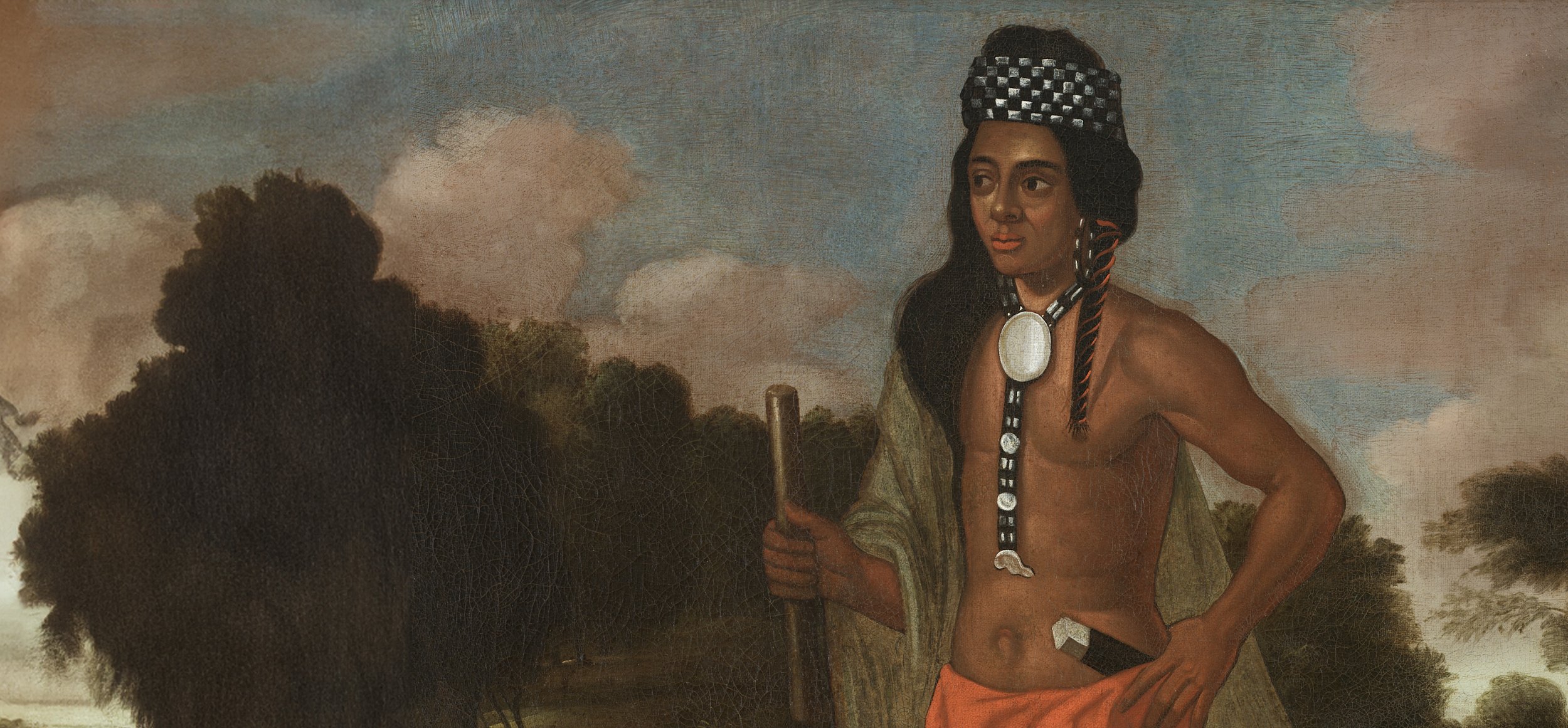
“We need a full and honest
reckoning with our history.”
— attendee, Tyranny vs Liberty series
Knowing the full picture
When we asked our audience why the 17th century mattered, they replied with gusto. “Knowing the whole picture can’t help but change what we think we are,” wrote one person. “The dispossession of Native nations has left a long painful legacy,” wrote an Indigenous woman. “We are today a ‘nation of rebels’,” wrote another person, “the outgrowth of radical protestantism.” What more did they say? Find out now!
are you a reader?
If your answer is yes, well - we are readers, too. That’s why we’ve created our READ page, to tempt you to read more! And here’s the latest book review, hot off the press. Our supporter David Achenbach gives us his take on Edmund Morgan’s The Puritan Family - still in print after 60 years, and just as readable, eloquent and insightful as ever. And don’t forget our virtual book club!
surprising revolutionaries
New England Puritans insisted on self-government, bearing with them their charter. They drafted the first American bill of rights, enshrining liberties which far surpassed any in the English-speaking world. Who would have thought that Puritans could be so revolutionary? Francis J. Bremer explores the 1641 Body of Liberties and its guarantee of due process, the right to protest, and equality under the law.
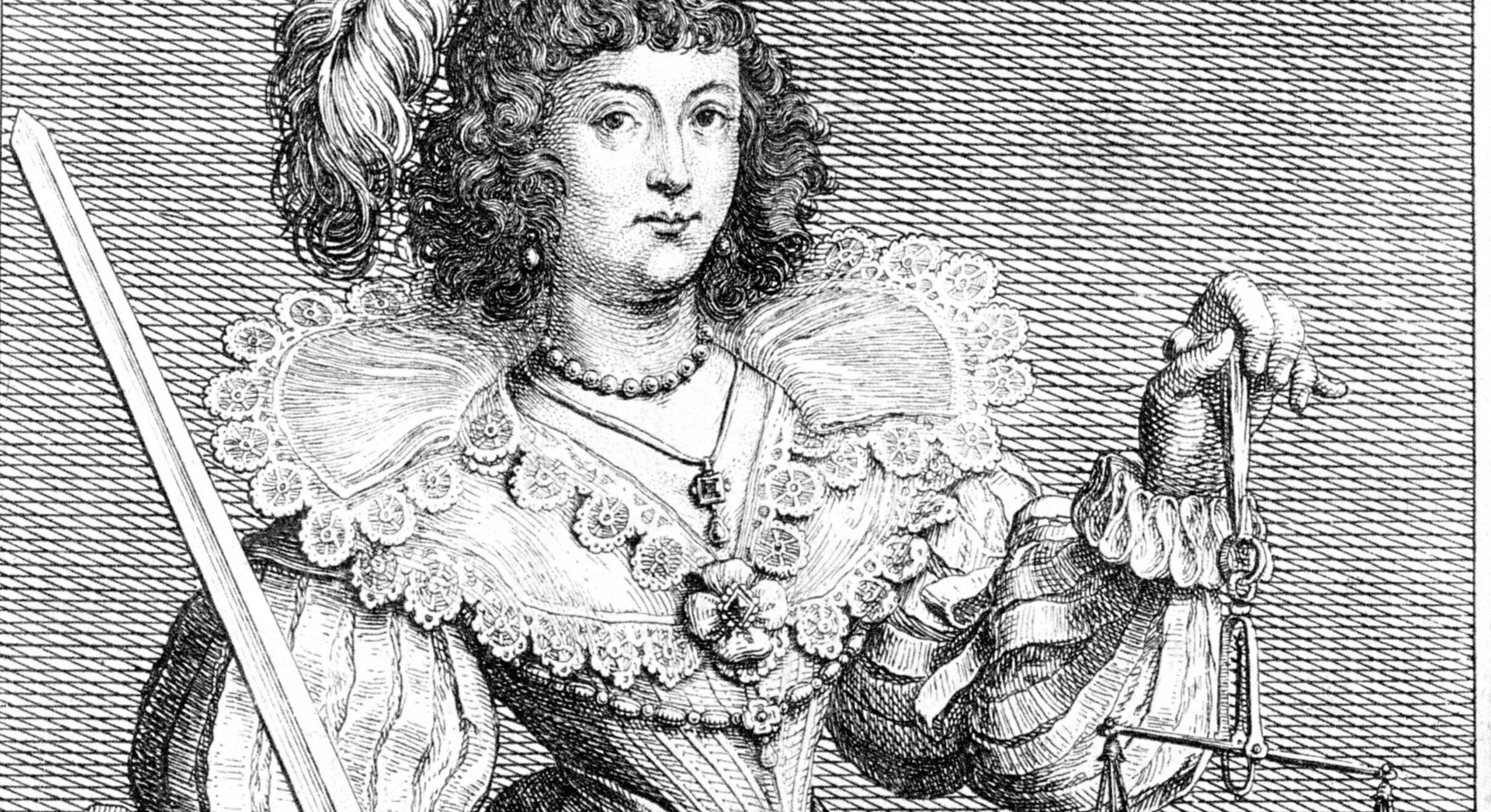
“This talk opened a new world for me.”
— attendee, ‘I Pledge Allegiance’: Sovereignty and Sanctuary in the Dawnland

